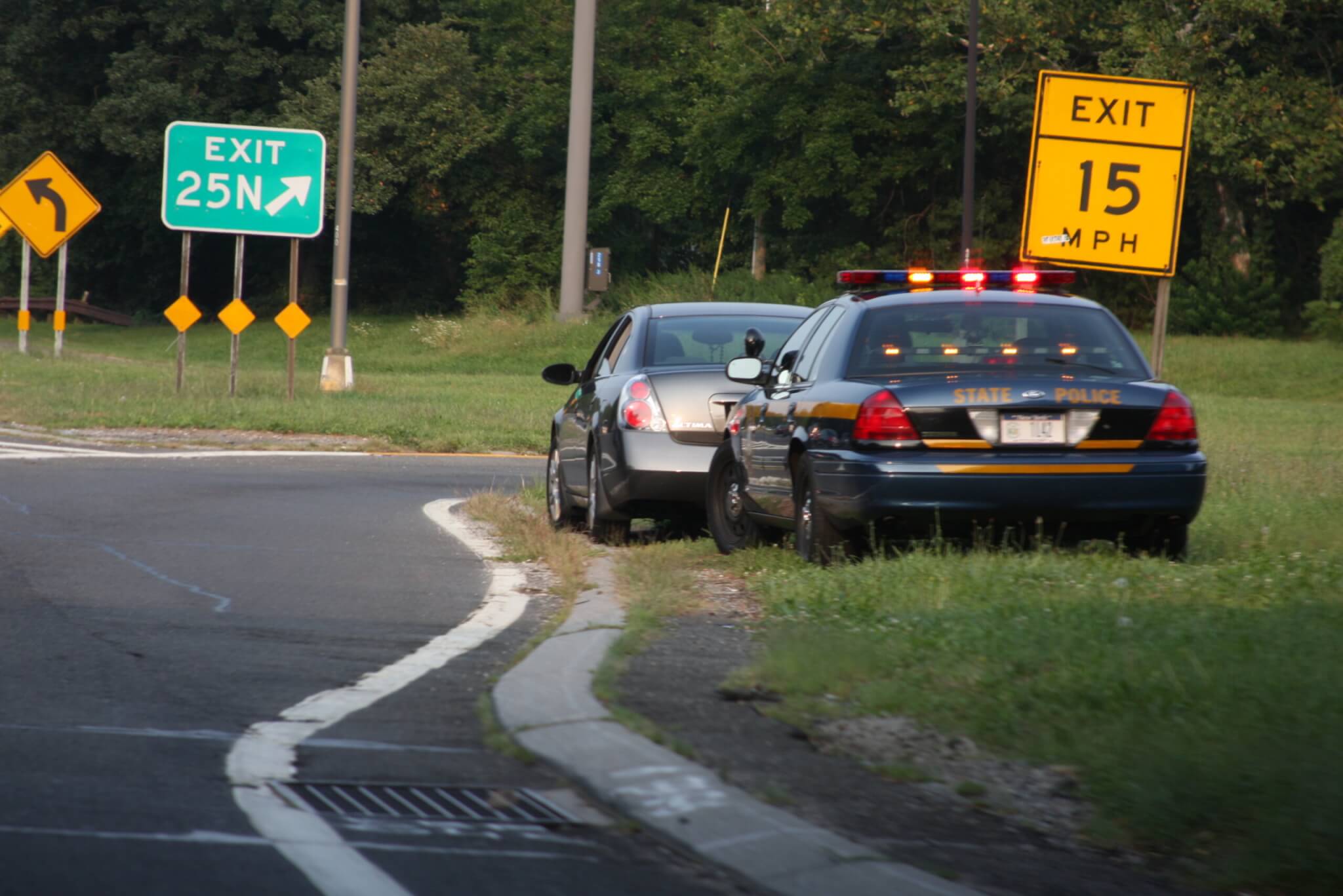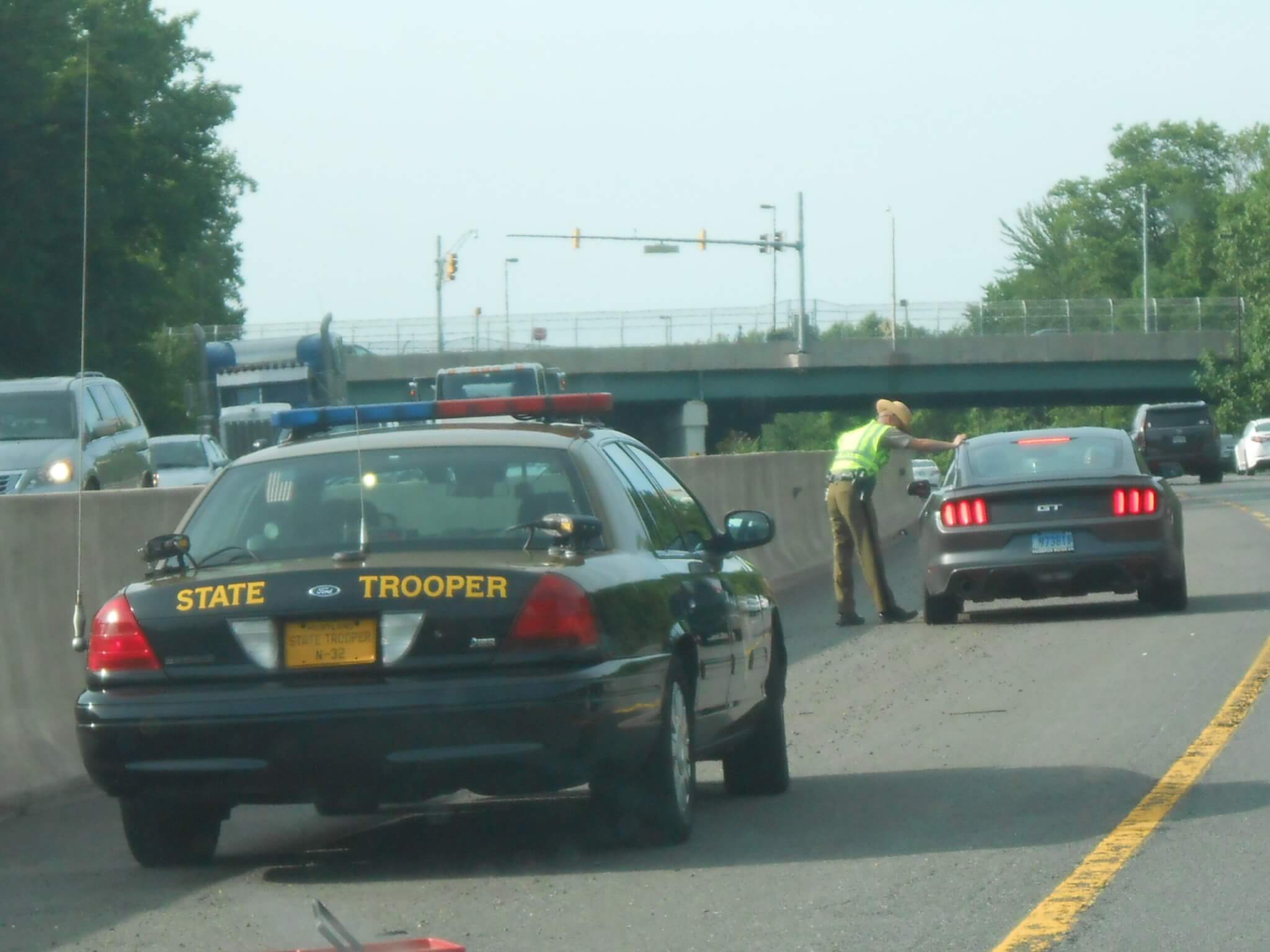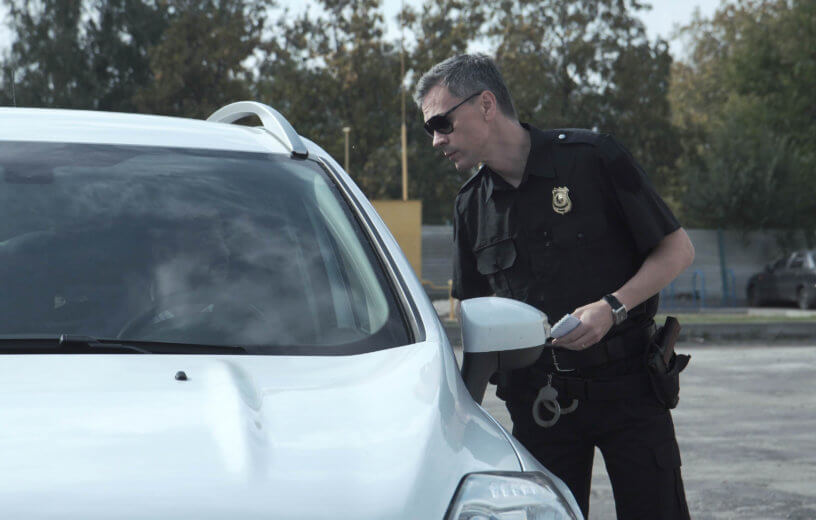BLACKSBURG, Va. — The first 45 words police use during a traffic stop can often determine if the situation with the driver will escalate, a new study explains. Researchers from Virginia Tech say these first few seconds — particularly when police officers pull over Black drivers — are key in deciding if a normally routine stop turns into a potentially “life or death” incident.
They explain that their study of vehicle stops by law enforcement — which also analyzed events leading up to the death of George Floyd — highlights the importance of an officer’s first words to Black drivers in a stressful environment.
“We found that there’s a key difference in how officers talk to Black drivers during the first moments of stops that end in an arrest, handcuffing, or search versus those that don’t end in such outcomes,” says study lead author Eugenia Rho, who leads the Society, AI, and Language (SAIL) research lab at Virginia Tech. “Simply put, the officer starts off with a command rather than a reason in escalated stops.”
The study, published in the Proceedings of the National Academy of Sciences, also finds that Black men could often tell how a traffic stop would play out simply by listening to those 45 words — which usually take about 30 seconds to say.
“There’s a clear linguistic signature to escalated vehicle stops. It was discerned by trained coders, computational language models, and perhaps most importantly, by Black male citizens,” Rho says in a university release.

The research team examined audio recordings and transcripts from police officer body cameras during 577 traffic stops over the course of one month in what the scientists called a “medium-sized, racially diverse city.” The data included stops that ended in arrest, handcuffing, or searches and those that did not, but did not include any stops in which force was used.
The study authors say they focused on Black drivers because they were “disproportionately represented” by the police data.
“We limited the study to Black drivers because less than 1 percent of the escalated stops included non-Black drivers in our sample,” Rho continues. “We included both male and female drivers, but escalated stops were predominately male drivers.”
Rho adds that the data helped the team across two studies, one focusing on each officer’s language at the beginning of a traffic stop and a second looking at better understanding the perception of Black men when they hear the officer’s words. A third part of the new paper examined the first moments of the fatal incident involving George Floyd in May 2020.
‘Stops that end escalated, often start escalated’
In the first study, researchers used computational linguistics and hand annotation to analyze the police transcripts. This helped the team identify “dialogue acts” such as greeting, commands, questions, reasons, and more.
“Dialog acts are like conversation road maps,” Rho continues. “They show not only what the speaker is trying to do – like ask a question or give an order – but also how that piece of conversation fits into the larger discussion, helping to guide what might be said next.”
Researchers also set controls to account for factors that could impact an officer’s language, such as the reason they pulled the driver over and the area’s crime rate.
“During vehicle stops, officers might ask for ID, explain why the driver was pulled over, or give a ticket. We were interested in how the balance of these dialog acts might differ between escalated and non-escalated stops,” the study author explains.
Results show traffic stops that escalated were almost three times more likely to start with the police officer issuing a command to the driver. These incidents were also two-and-a-half times less likely to start with the officer providing a reason for the stop.
“We found that stops that end escalated, often start escalated,” Rho reports.

In the second study, the VT researchers played the audio from the same traffic stops they examined in the first study to a group of 188 Black men — varying in age, region, education, and political affiliation. Each participant had to listen to 10 random traffic stops at random – five ending in escalation and five that did not– from the perspective of the driver. The participants then took a survey revealing how they felt about each stop and gave their predictions about how the stop ended.
Results show Black men appeared to use each officer’s language as their guide to whether they thought the stop would end with the driver being arrested or searched. The group predicted that 84 percent of stops that involved an officer giving orders with no reasons for the stop would escalate.
The participants also worried about the use of force in over 80 percent of the stops where police officers started by giving orders and not providing a reason for the stop — compared to only 47 percent of stops starting with the officer telling drivers why they pulled them over.
What happened during the George Floyd incident?
After finding this unique “linguistic signature” among traffic stops, the researchers looked to see if the same signature was present when traffic stops ended with the use of force by police. The team examined the initial moments between Floyd and the officer who first approached him on May 25, 2020.
Within the first 30 seconds, the officer delivered 57 words during nine speech turns. All of them consisted of physical orders. Floyd, in his 11 speech turns, extended apologies to the police, asked for a reason for the stop, declared his innocence, expressed fear, and pleaded with the officer. However, Rho says each comment by Floyd was met with an order by the officer.
With more and more vehicle stops gaining national attention when officers use force, Rho says the team feels it’s important to better understand police-citizen interactions during more common vehicle stops.
“The most common way for the average citizen to encounter law enforcement is through vehicle stops,” Rho concludes. “So we really wanted to better understand how we can improve communication between officers and citizens during those encounters.”
“We want this study to really start conversations around how we can inform training around de-escalation practices for law enforcement and potentially a better understanding of how to facilitate relations between Black communities and law enforcement as well.”
South West News Service Stephen Beech contributed to this report.


There are so many things wrong with this article. First, police contacted Floyd after the shop owner called 911. Floyd was sitting in a parked car when officers arrived, and that’s a far cry from your run-of-the-mill traffic stop. He was being detained for a traffic violation. That was a bad example. And traffic stops run the full gamut. There is a difference between being stopped for a red light violation then there is for being in a stolen vehicle or even a warrant hit.
Are you capable of reading, or just incapable of comprehension?
The point of the article is very clear, if a cop starts off shouting/giving orders, without any explanation of why he is there, then it will escalate.
If someone tries to establish control/authority without a reasonable cause then the individual will resist, verbally and eventually physically.
The Cops (and the cop-suckers) response is always “why not just comply?”
My answer is why the hell should I? They are there to “Protect and Serve” (OK stop laughing, just stop laughing).
I am angry because I know that they are going to take my money. I am angry because I have committed no crime, no one was/is harmed and their stupid statutes and rules do nothing except put limits on my freedom.
Plus they lie, all of them 90% of the time.
“Do you know why I stopped you?” is an immediate sign that this is going south. The answer “Do YOU think I am psychic?” merely aggravates the situation.
If the cop starts out by apologising and ends up with “I am just doing my job” then I can at least merely despise him instead of disliking him.
They are “Licensed Road Bandits” working in a system designed to take as much money as possible from as many as possible.
We don’t need them and we certainly don’t want them.
It was considered “obstructon” of justice if anyone flashed their lights to oncoming traffic warning of a hidden police cruiser looking to fine speeders. I often wondered how it could be obstruction, unless the police were there not to stop speeding but to line their coffers with cash from fines. The truth is that by flashing their lights people were immediately slowing traffic thereby possibly saving lives, So how could saving lives be “obstruction” of justice?
Archie, I was told that if i saw a road hazard, flash my lights to warn oncoming traffic. So I assume the same, slow down and be alert for some type of hazard like animal on the road, ice, pedestrian on shoulder, bicyclist, etc.
I wish the article would of suggested some responses to the cop that starts with “I guess you always drive this rattle trap faster than needed, show me your license and registration”. (it did not end well)
I’d be really interested in seeing the second study performed with different demographics, not just blacks. That may shed some light on how much society has primed different communities to escalate (or anticipate officer’s use of physical force) whether correctly or incorrectly.